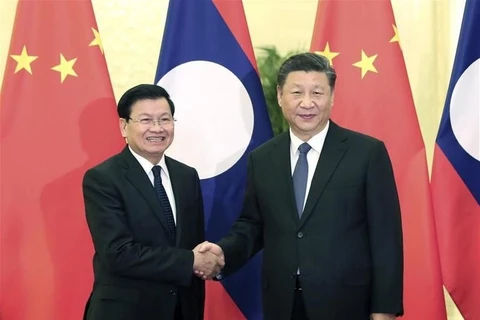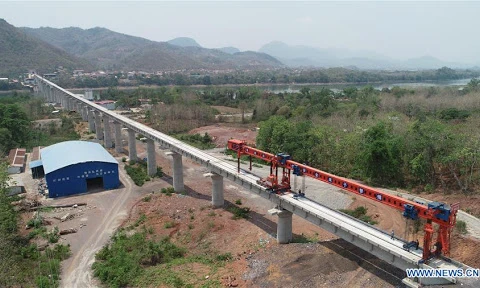 Laos-China Railway bridge crossing the Mekong River in Luang Prabang (Photo: https://laotiantimes.com/)
Laos-China Railway bridge crossing the Mekong River in Luang Prabang (Photo: https://laotiantimes.com/) Laotian Times quoted Director-General of the Investment Promotion Department under the Lao Ministry of Planning and Investment Outakeo Keodouangsinh, saying that the Laos-China Railway project has a total investment of over 5.9 billion USD, and operates under a 50-year concession period.
Some 40 percent of the investment soured from the Lao and Chinese governments, and the other 60 percent was a loan from China’s Export-Import Bank, Keodouangsinh said.
The Laos-China Railway Company will be liable for maintenance costs and other risks once the 50-year concession period expires and the project is handed over to the Lao government.
Infrastructure development around the station has been agreed upon at four points, including 1,000 ha at stations in Oudomxay province and Vientiane capital city, and 500 ha surrounding Vang Vieng and Luang Prabang stations.
He noted that the Lao government would not provide further land for investment surrounding the Laos-China railway project./.
VNA























